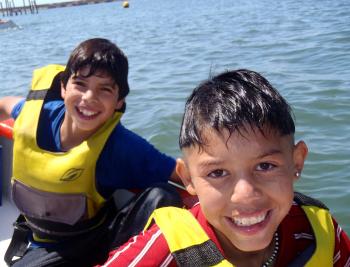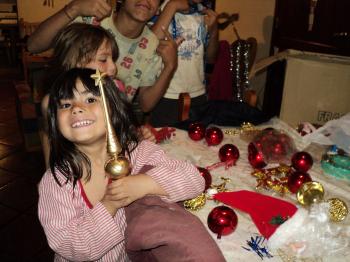In the South American country with the second highest Human Development Index, many still have not recovered from losing their livelihoods

Mar del Plata is located on the Atlantic coast and has a population of over 600,000. Its main economic activity is tourism, with over eight million tourists visiting the city each year. It is also an important fishing port. The city has attracted a great number of both internal and external migrants over the last century and its population has expanded continuously. In the past two decades alone, over 200,000 people migrated to Mar del Plata in search of economic opportunity. It is estimated that an average of five new families arrive in Mar del Plata each day.
This has turned the city’s periphery into a belt of poverty, where basic infrastructure, such as housing, education, sanitation or running water, is not sufficiently in place. Poverty, at over 30 per cent, is around three times higher than the national average. High levels of unemployment mean that many people lack the means to ensure an adequate diet for their family. These circumstances, in turn, lead to social segregation and marginalisation, which can have a profound impact on the future of children from these families; the burden of such stigma in childhood can be hard to shake later in life.
At-risk children need help before their life becomes a downward spiral into poverty
Often, children have to contribute to the family income, which interferes with their education and endangers their physical and psychological development. So-called “street children”, who live on their own and fend for themselves from a young age because their parents are unable to look after them are also no rarity in Mar de Plata.
Today, there is a strong social divide in the country: some have managed to emerge from poverty and (re-)integrate into the middle class, but many remain in a state of deprivation, despite several years of steady economic growth. Social welfare programmes do exist in Argentina, but children who are at risk of losing parental care continue to be incredibly vulnerable.
What we do in Mar del Plata

SOS Children’s Villages began its work in Mar del Plata in 1982, making it our second programme in Argentina. The social centre here offers a family strengthening programme that aims to alleviate hardship in the community. Its services include a childminding programme, which allows working parents or single mothers to leave their children in safe hands while they are out making a living. The activities of the social centre are organised by the community itself, with SOS Children’s Villages providing training and support.
For children who are no longer able to live with their parents, ten SOS families can provide a loving home for up to 90 children. Living with their brothers and sisters, they are affectionately cared for by the SOS mothers.
When young people are ready to leave their family in order to pursue higher education or vocational training, our SOS Youth Programme provides shared housing. With the support of qualified counsellors, young people can plan their future, learn to take responsibility and prepare for an independent life.